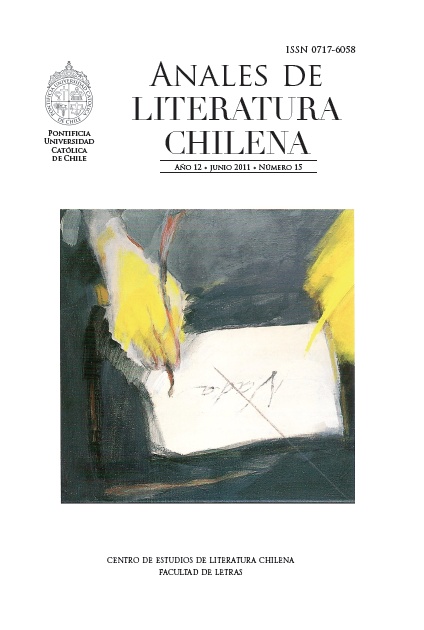Cartografía de la novela chilena reciente
Keywords:
Recent Chilean Narrative, Literary Genres, Hybrid Novel, Realism, Experimentalism, Melodrama & Newspaper SerialAbstract
This dossier presents a particular arrangement of Chilean narrative written in the last twenty years, within four fields or genres: realism, experimentalism, hybridism and a subgeneric field. The first article presents and explains these categories; the following articles analyze six novels of the period: Mala onda (1991) by Alberto Fuguet; El tango del viudo (2003), La espesura (2004) and Las musas (2006) by Cristián Barros; Caja negra (2006) by Álvaro Bisama; and Mapocho (2002) by Nona Fernández. The first novel belongs to realism, the subsequent three to experimentalism, and the last two novels to hybridism. Mala onda is read as a fiction with satiric intentions that turns into a ‘comedy of duty’ (in the terms of Hayden White), in other words, the text functions as a recit of reincorporation to a social order that was initially rejected. The analysis of the three novels of Cristián Barros explores on a particular approach to experimentalist narrative, starting from the opposition between legible and illegible texts, developed initially by Roland Barthes in S/Z. The last two articles, on hybridism, discuss the forms of violence that are articulated in Caja negra, and finally, the mixture of popular and high culture codes, history and melodramatic genres, as it is presented in Mapocho, a novel that builds a recit of the History of Chile as melodrama.
Downloads
Downloads
Published
How to Cite
Issue
Section
License

This work is licensed under a Creative Commons Attribution-NoDerivatives 4.0 International License.


